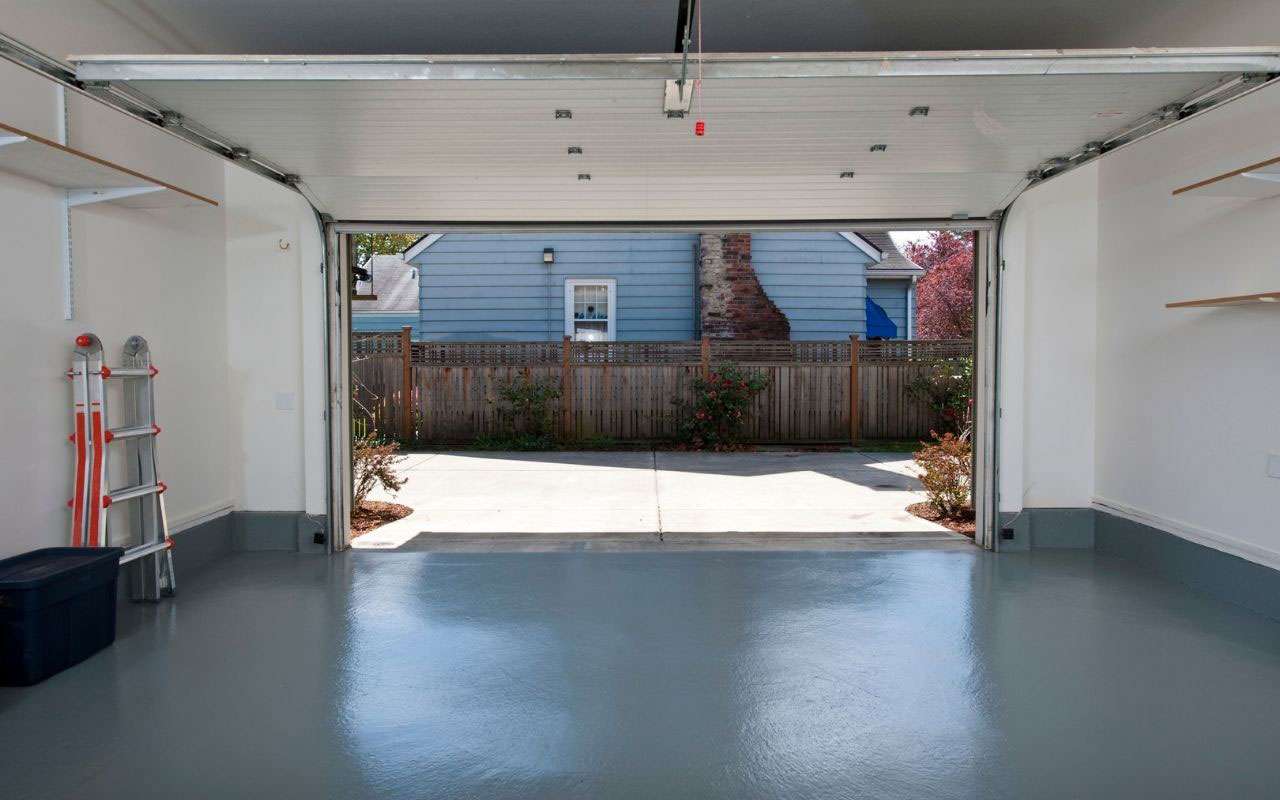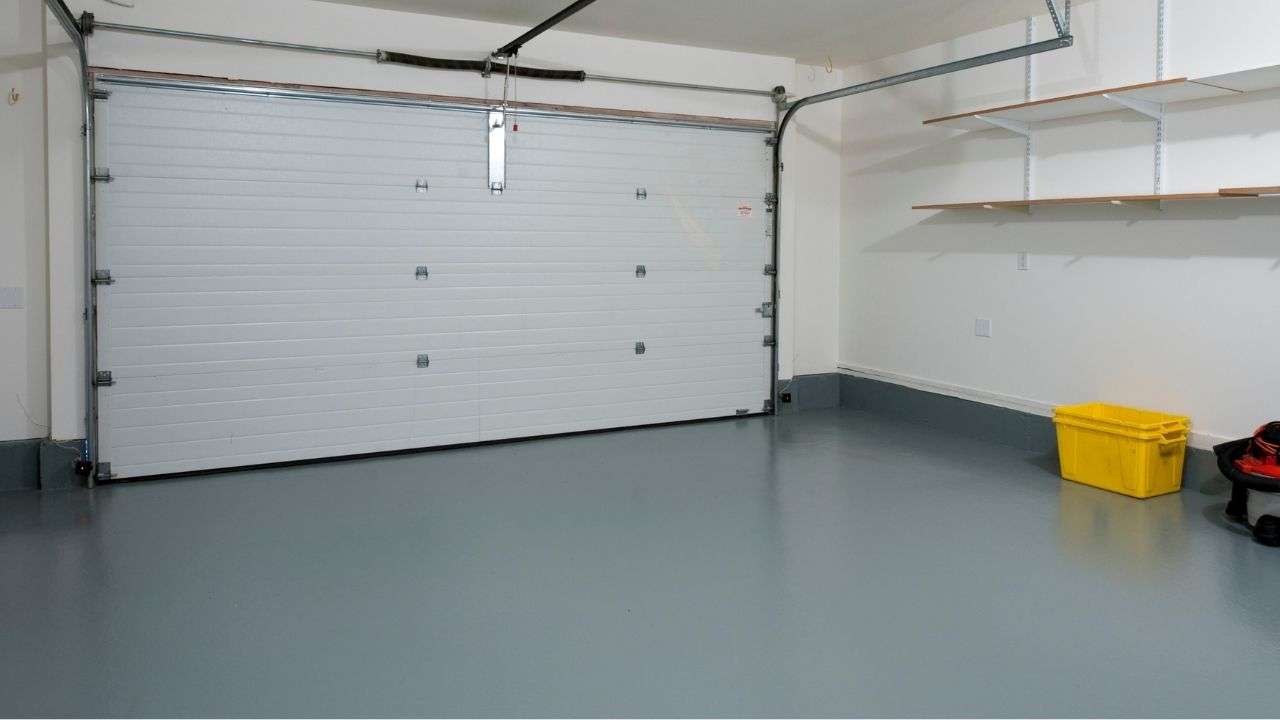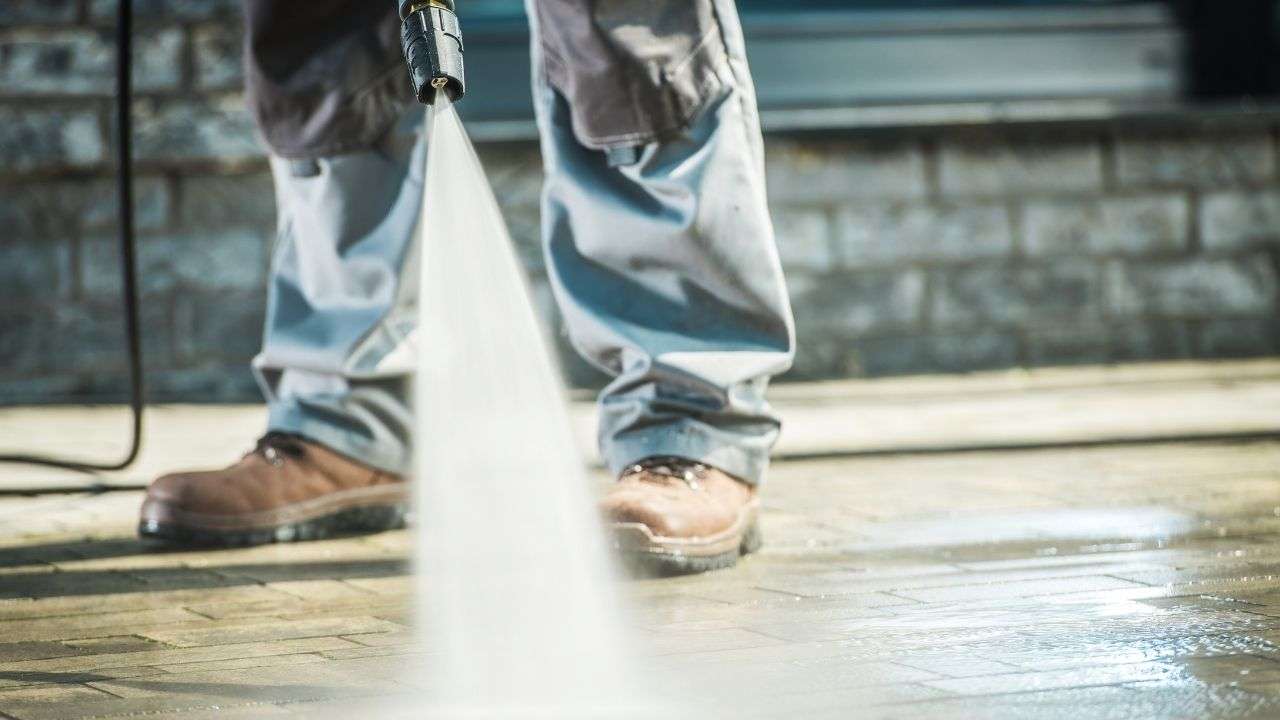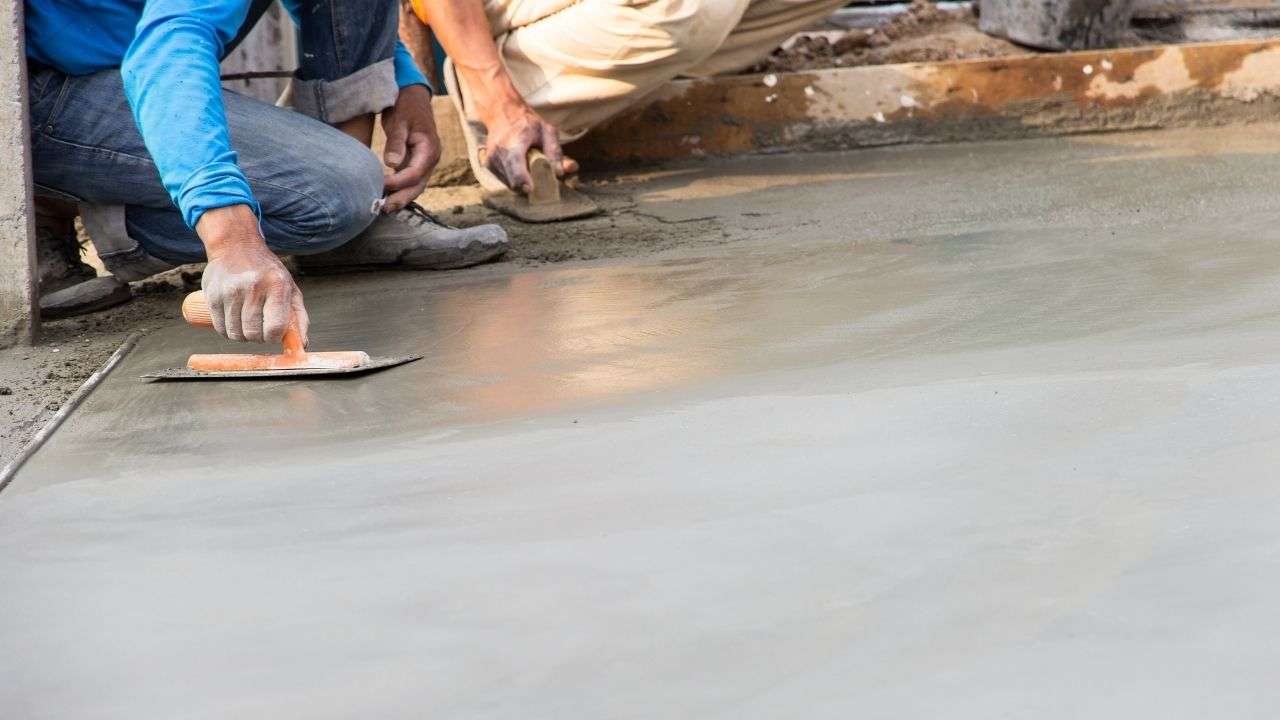
Garage flooring is often composed of concrete, which is intended to be long-lasting and robust. On the other hand, a concrete garage floor may develop cracks due to weight, usage, weather, and other reasons.
Fix cracks on your concrete garage floor as soon as possible to prevent them from spreading and causing more harm. Before beginning crack repairs on a concrete garage floor, preparing the zone, looking for suitable materials, and, more importantly, being informed is critical.
Follow These Easy Steps to Repair Your Concrete Garage Floor

If your concrete garage floor is cracked or chipped, follow these steps to repair your floor like an expert:
- Remove wear by washing.
- Clean the slab and repair any deep holes or fractures.
- Use a large trowel for leveling.
- Repair lower areas.
- Use epoxy coats to protect your concrete garage floor.
Don’t worry; keep reading this blog to be aware of the main elements of fixing a concrete garage floor. Remember that you should consider professional advice to have better results.
Remove Wear by Washing

Ground-in dirt and oil stains that accumulate in the garage may obscure an otherwise beautiful surface. In these situations, a little elbow grease and some simple cleaners may go a long way toward rejuvenating the overall appearance of the concrete.
One excellent recommendation is to use a pressure washer to remove oil stains and mildew on the floor surface. Many homeowners buy pressure hole systems to clean at least once a week to remove the most difficult stains but remember not to overwater the floor.
Clean the Slab and Repair Any Deep Holes or Fractures
Even the most robust concrete floors can suffer structural damage—crumbling, chipping, or deep cracks due to something as simple as freezing and thawing when the seasons change. To address these concerns before they worsen, use a professional-grade product like Rapid Set Cement All.
This high-quality, fast-setting compound adheres to pre-existing, damaged concrete with better strength, making modest concrete repairs a simple do-it-yourself operation and reducing the need for a full-fledged floor replacement.
Moreover, we can identify any type of hole in the concrete floor, and in this case, you should fix it to avoid any other future problems. Remember to use the required materials and, most importantly, gloves and glasses at all times. The holes or fractures receive the name of concrete pitting and spalling due to the forms they take in the concrete.
The pitted and spalled concrete is often seen in old structures and surfaces like concrete garage floors, and it happens when the concrete starts to peel or crack. Most of the common reasons are overwatering when cleaning, poor maintenance, and season changes. So, it is essential to fill the holes with some cement caulks or patchers. Sometimes, you can’t do it by yourself, so you should contact professionals.
Also, an epoxy formula will help you after this step, so keep reading to find more information about this fantastic product.
Use a Large Trowel for Leveling

If you don’t know what a trowel is, it is a smart tool that carpenters and builders use to smooth or dig some materials. One of the best examples is when you try to level the floor with cement mix. This step is crucial to avoid cement lumps on the floor.
Moreover, this action will help you to set all kinds of mix on the garage floor, and remember to always sweep across the entire floor. Sometimes, it is necessary to do this action many times until the base is smooth. Besides, be sure that you are leveling correctly because sometimes there can exist some unevenness where the water remains, creating corrosion and damaging the structure.
Repair Lower Areas
Sunken slabs are one item we didn’t address. Unfortunately, these are not easy to repair and can be rather pricey. These can be caused by significant soil settling, inadequately reinforced slabs, or even worse, underground water issues. Sometimes tearing down the old slab, addressing any soil compaction requirements, and pouring new concrete is the only option.
Clean the area to be repaired thoroughly, eliminating any crumbling concrete. Saturate the surface, then mix in the required quantity of Cement. All for one to three minutes (preferably with a power-driven mechanical mixer) until it reaches a smooth, peanut-butter consistency. Smooth the concrete with a trowel or broom after applying the resultant compound to the damaged area and packing it to the appropriate level.
Use Epoxy Coats to Protect Your Concrete Garage Floor
Many homeowners think that an epoxy coat is some kind of paint, but no. An epoxy coat is a compound mix, cost-effective, and durable floor layer. Most constructors use this epoxy to protect the floor so that it will protect your garage. It will give aesthetic and resistant protection, which is powerful for the concrete surface,
Moreover, there exists some garage floor coating that offers the highest qualities for your garage floor. What makes this proxy powerful is the resin, which gives a brilliant and new view of the floor. Also, it fortifies the structure, and it is an excellent product against floor corrosion. But two disadvantages are the price and the manipulation.
Epoxy coats might be waterproof, but depending on the structure. If you don’t know about this product, you must contact professionals for floor covering applications. Usually, epoxy floors are one of the best options for your garage.
Repairing a concrete garage floor could be a difficult task if you don’t know what to do. Looking for suitable materials, making cement or epoxy mix, washing, or leveling the zone are usually complicated if you cannot perform. Just imagine you can destroy your garage floor if you put the proxy incorrectly.
Maintaining your concrete garage floor is essential because it could damage water pipelines or even break other surfaces. Here at Best Floor Coating, we can help you with your garage floor coating, so don’t be afraid of contacting any doubt you could have. It is vital to count on professional advice before doing any difficult floor change.
